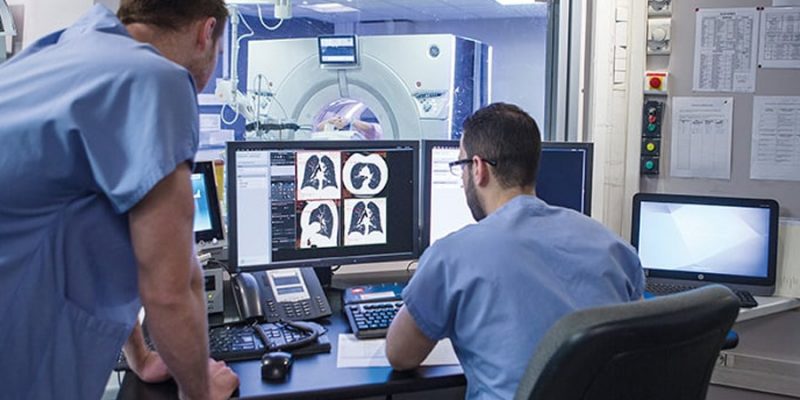
AI-Powered Tools Revolutionize Medical DiagnosticsAI-Powered Tools Revolutionize Medical Diagnostics Artificial intelligence (AI) is rapidly transforming the healthcare industry, particularly in the field of medical diagnostics. AI-powered tools are empowering healthcare professionals with unprecedented capabilities, leading to more accurate, timely, and efficient diagnosis. Enhanced Image Analysis: AI algorithms can process vast amounts of medical images, such as X-rays, CT scans, and MRIs, with remarkable speed and accuracy. They can identify subtle patterns and abnormalities that may be invisible to the human eye. This enhanced image analysis enables earlier detection and diagnosis of diseases, leading to improved patient outcomes. Personalized Diagnostics: AI can analyze patient data, including medical history, genetic information, and lifestyle factors, to tailor diagnostic tests to individual needs. This personalized approach leads to more accurate and targeted diagnoses, reducing the need for unnecessary tests and procedures. Remote Monitoring and Telemedicine: AI-powered tools allow for remote monitoring of patients’ vital signs and health data. This enables healthcare providers to track patient progress in real-time and provide early intervention if needed. Telemedicine platforms integrated with AI can also facilitate remote consultations and diagnosis, improving accessibility and convenience for patients. Automating Routine Tasks: AI can automate time-consuming tasks such as data entry, test result interpretation, and report generation. This frees up healthcare professionals to focus on more complex and patient-centered aspects of care. Automation also reduces human error and improves the efficiency of diagnostic processes. Faster and More Accurate Diagnoses: AI algorithms can process patient data and medical images in a fraction of the time it takes human radiologists or pathologists. This faster analysis allows for timely diagnosis and prompt treatment, improving patient outcomes and reducing delays in care. Improved Diagnosis of Complex Diseases: AI is particularly valuable in diagnosing complex diseases such as cancer, neurological disorders, and rare conditions. AI algorithms can analyze multiple data sources and identify patterns that are beyond the scope of human comprehension, leading to more accurate and early detection. Challenges and Future Directions: While AI-powered tools bring immense benefits, challenges remain. Concerns about data privacy, algorithmic bias, and the need for regulatory frameworks must be addressed to ensure ethical and responsible implementation. Ongoing research and development will continue to refine AI algorithms, expand their applications, and further revolutionize medical diagnostics. In conclusion, AI-powered tools are transforming medical diagnostics, enabling more accurate, timely, and personalized diagnosis. By automating routine tasks, enhancing image analysis, and providing personalized insights, AI is empowering healthcare professionals to deliver better patient care and improve overall health outcomes.
Posted inNews